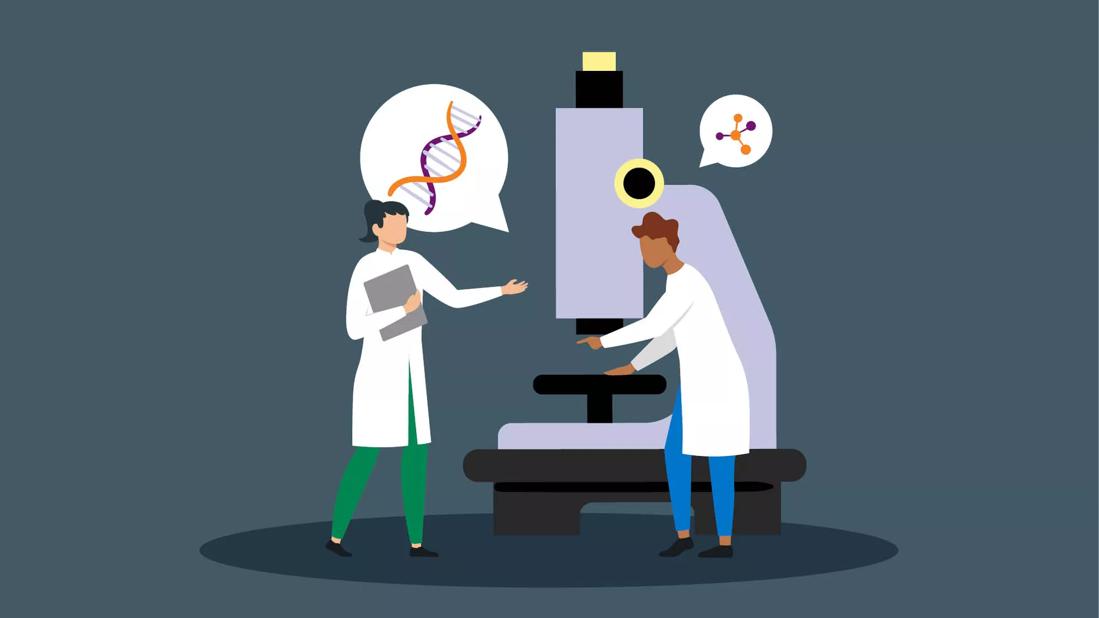This cancer of the blood is rarely passed down, but genetics can help determine risk

Image content: This image is available to view online.
View image online (https://assets.clevelandclinic.org/transform/153221fc-fa9b-4a87-a675-0f3337e2e311/Leukemia-Hereditary-1804087980-967x544-1_jpg)
two doctors in lab coats having conversation in front of giant microscope
Genetics can increase your risk of leukemia, a cancer of the blood, but that doesn’t mean the disease is hereditary. In fact, leukemia running in families is rare. The cellular mutations that can lead to the disease aren’t typically passed from generation to generation.
Advertisement
Cleveland Clinic is a non-profit academic medical center. Advertising on our site helps support our mission. We do not endorse non-Cleveland Clinic products or services. Policy
But your family tree and DNA can offer hints about your chances of getting leukemia, as oncologist Akriti Jain, MD, explains.
Researchers have identified only a few families with an inheritable form of leukemia, says Dr. Jain. So, what causes the disease? That’s still somewhat of a mystery. But there are known risk factors.
Certain genetic mutations, for instance, can increase your leukemia risk. These include:
The likelihood of a future leukemia diagnosis also increases with the following genetic conditions:
Advertisement
If you or a relative have any of these conditions, your doctor may suggest taking action. “If we know someone has a genetic defect, we can send them and their family members to get genetic counseling,” says Dr. Jain.
Because the more you know, the better you and your doctor can monitor and treat the situation for you and your relatives.
Leukemia comes in many forms and can affect anybody. It develops in children and adults (mostly older adults and those assigned male at birth). It accounts for more than 3% of new cancer diagnoses.
In most cases, healthcare providers can’t pinpoint an exact cause for leukemia. But certain life circumstances appear to be connected to the disease. You’re more at risk for leukemia if you have:
The search for biological processes and interactions that may lead to leukemia is ongoing.
“There has been an explosion in research into trying to find out how certain changes in DNA can cause normal bone marrow cells to become leukemia cells,” says Dr. Jain.
“We are finding more answers as we get better at performing genetic testing and more about the biological processes that can lead to leukemia.”
Advertisement

Delivered every Tuesday!
Sign up for our Health Essentials emails for expert guidance on nutrition, fitness, sleep, skin care and more.
Learn more about our editorial process.
Advertisement
7 tips to guide you through their treatment
Although related like cousins, they’re two different cancers
There are often options, even at age 99
Most recommended precautions center around minimizing bruising or swelling
Even one drink can have an impact on your cognitive function leading to slurred speech, blurred vision and impaired memory
Understand who may (and may not) benefit
Type 2 diabetes isn’t inevitable with these dietary changes
Applying a hot or cold compress can help with pain
Pump up your iron intake with foods like tuna, tofu and turkey